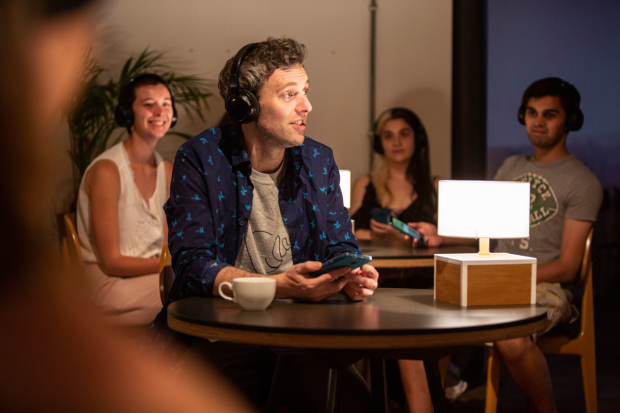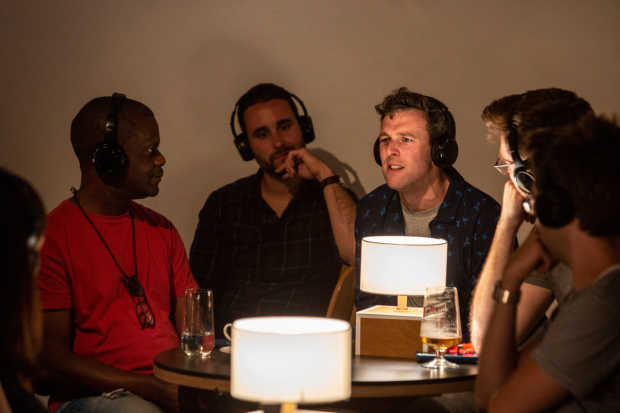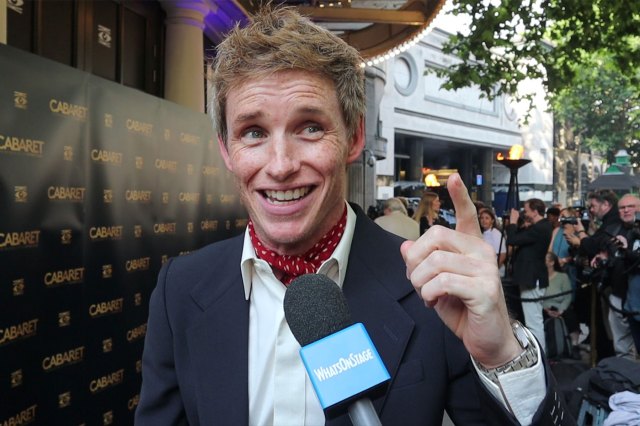User Not Found: the Edinburgh show exploring what happens to your internet profile when you die
Terry O’Donovan and Daphna Attias explain the thinking behind their new show, which explores what happens to your digital life when you die

(© Justin Jones)
Three years ago we read an article published in The Guardian in which Caroline Twigg questioned what should happen to her husband's digital legacy after his sudden and unexpected death. Her writing is poignant yet aware, a moving depiction of grief that was magnified through the screen-life of the man she had lost in reality.
Immediately after reading her story, we began imagining a Dante or Die-style performance inspired by this contemporary addition to the grieving process. Our audience would see into the online world of someone faced with the questions that go hand-in-hand with legacy: what should or shouldn't you read, how has privacy changed now that smartphones and laptops are so entwined with our day-to-day living, and how do our digital identities compare with the 'real' us.
At the time, we happened to be spending a lot of time in cafés. When we looked around we were always surrounded by people on screens and headphones and it seemed a perfect location in which to stage our piece. What if the person two tables away was receiving the worst news possible via text message, or getting a phone call that was going to change their life. The public/private space of our phones that we carry around with us and the cafes we sit in seemed to align perfectly.
If there was a button that you could press at the moment of your death that would delete your online existence would you push it?
We put together an amazing team of collaborators including writer and maker Chris Goode (we've been fans for years) and Luke Alexander and Abhinav Bajpai from Marmelo – a creative digital agency. Chris, Luke and Abhinav joined us at Artsdepot in north London about a year and a half ago where we began thrashing out the themes and possibilities theatrically and technically. We talked about our own digital footprints and wrestled with how we feel grieving has changed with things like Facebook legacy pages and live streaming funerals. Does it make us more connected or less so? Does it isolate us as well as soothe us when we're missing our lost loved ones? Chris created a Twitter poll asking: If there was a button that you could press at the moment of your death that would delete your entire online existence would you push it? The options were Yes or No. At the end of the day over 70 people had voted and the result was 52 per cent to 48 per cent – similar to a very recent contentious referendum. We took that question as the central concern for our production and decided audience members would receive a phone (rather than use their own), and a pair of wireless headphones to experience the story.

(© Justin Jones)
Over the course of our creation period, we've spoken to funeral directors, end-of-life carers, solicitors dealing with the development of digital assets. We've been creeped-out by 'emotional life insurance' services like Safe Beyond that allow to you leave messages beyond the grave. We've worked with John Troyer who is the director for Centre of Death and Society, and interviewed the brilliant Aleks Krotoski from Radio 4's The Digital Human.
The app we use reminds us of the power that everyday technology has now that it is so ingrained in our lives
As a team, we decided that we wanted to approach the subject matter from the human experience – both the technical and narrative worlds of the show. Chris has written a tender, funny and complex monologue about grief and legacy. Luke and Abhinav's app gently interweaves with the live performance. Rather than being a spectacular use of the digital element, their platform reminds us of the power that everyday technology has now that it is so ingrained in our lives. There are lots of quietly impressive elements to what they've created. One example is that the show always starts with today's date and time on the phones and every message and email corresponds with a timeline of six weeks previously. They have also built a way of integrating captioning into the app so that every performance is accessible for D/deaf audiences, which has been a massive technical achievement.
So now we're getting ready to premiere at the Edinburgh Festival Fringe in a gorgeous family-run café called Jeelie Piece. It's our first time performing at the fringe so we're eager and petrified at the same time. We've previewed in three venues, and had plenty of technical challenges thrown at us, like the phones crashing half an hour before we start, or Terry's microphone disconnecting at the top of the show. We also had a cat wander through one performance at the Roundhouse! We're eager to share our story with Edinburgh audiences and look forward to cheery chats in the pub about people's own digital legacy plans.





















